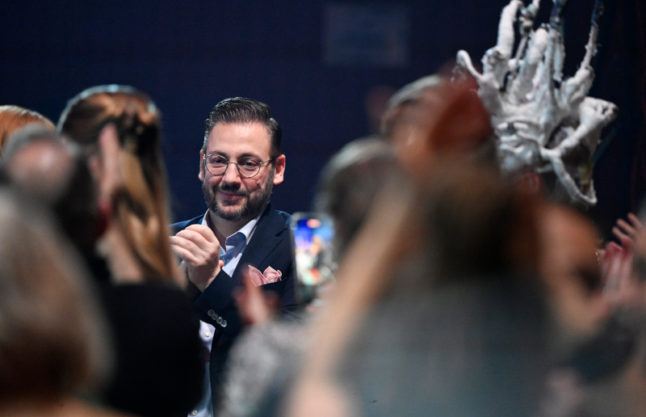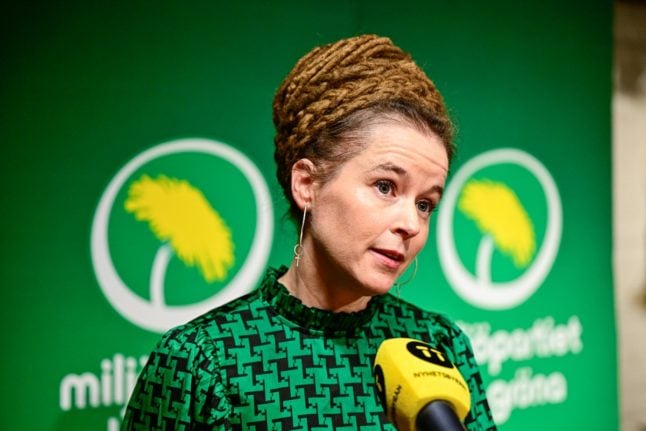There’s one small piece of good news for Centre Party leader Muharrem Demirok in Novus’ latest party leader poll: at least two out of three Swedes know who he is.
But voters being aware of your existence is the bare minimum of what any party leader can hope for, and there’s also bad news: only three percent have confidence in him.
That’s the lowest percentage scored by any party leader since Novus started their party leader polls some ten years ago, and will come as a concern for the struggling party.
“Perhaps not totally unexpected when the media coverage has not only covered his assault convictions, but that he didn’t tell the election committee about them,” read Novus’ report about Demirok’s two convictions of assault in his teens and 20s when he got into fights with fellow students at school and university. Demirok revealed the incidents of his own accord, but didn’t disclose them during his early candidacy.
I would add that it may also have something to do with Demirok having pretty big shoes to fill. He steps into the role after Annie Lööf, who led the party for 11 years and whose popularity and ownership of the liberal right’s anti-racism agenda meant that voters had a firm idea of what she represented. They’re not so sure about Demirok yet.
There’s a split within the Centre Party between those who want the party to move further right and abandon their recent friendship with the centre-left Social Democrats, and those who want to maintain a strict front against any collaboration with the current government as long as it is formally supported by the far-right Sweden Democrats.
It’s not yet clear which way Demirok is going to go, but in his first speech he criticised the government for “bending over backwards” for the Sweden Democrats in “some kind of competition in who can be the toughest against people with foreign backgrounds”.
But he also said he wanted to show people “a different path than meddling socialism”.
The party leader who’s enjoying the highest confidence ratings is still – by far – Social Democrat leader and former prime minister Magdalena Andersson. Fifty-three percent say they have high confidence in her, with actual prime minister Ulf Kristersson, leader of the conservative Moderates, trailing far behind at 32 percent in second place.
Loukas Christodoulou earlier this month wrote an article for us about how the only politician who is broadly popular is someone who is not in power. But Andersson’s popularity has failed to translate into a significant leap forward for the Social Democrats, even though they increased their support somewhat in the last election.
In other news
The Swedish parliament last week held a ceremony to mark one year since Russia launched a full-scale attack on Ukraine. “This day will for ever be associated with the bravery and strength of the Ukrainian people,” said parliamentary speaker Andreas Norlén. Don’t miss The Local’s interview with Ukraine’s ambassador to Sweden.
The Left Party wants those approximately 40,000 Ukrainians who’ve fled to Sweden under the EU’s Temporary Protection Directive to be able to get a personnummer – the Swedish identity number that unlocks a range of public services, including easier access to healthcare, Swedish for Immigrants classes and digital identification such as BankID.
The government is going ahead with plans to build offshore wind farms at Öland and Gothenburg. The former includes up to 100 wind turbines located 100 kilometres from the mainland, and the latter 61-94 turbines 40 kilometres north-west of Gothenburg.
The security service last week presented its analysis of threats against Sweden. It called Russia the biggest threat to security, but also said that violent islamists see Sweden as a “priority” target – a warning upgraded from a “legitimate” target following a far-right burning of the Koran and a disinformation campaign about the social services.
Twelve Sweden Democrat politicians in the town of Klippan in southern Sweden were expelled from the party after it emerged that they had elected two former Nazis – who had previously been expelled from the party – to senior official roles.
The politicians now refuse to surrender their council seats just because they’ve been expelled, and will instead keep working as independents – or “political savages” (politiska vildar), the Swedish words for elected representatives not linked to a party.
Politics in Sweden is a weekly column by Editor Emma Löfgren looking at the big talking points and issues in Swedish politics. Members of The Local Sweden can sign up to receive an email alert when the column is published. Just click on this “newsletters” option or visit the menu bar.



 Please whitelist us to continue reading.
Please whitelist us to continue reading.
Member comments